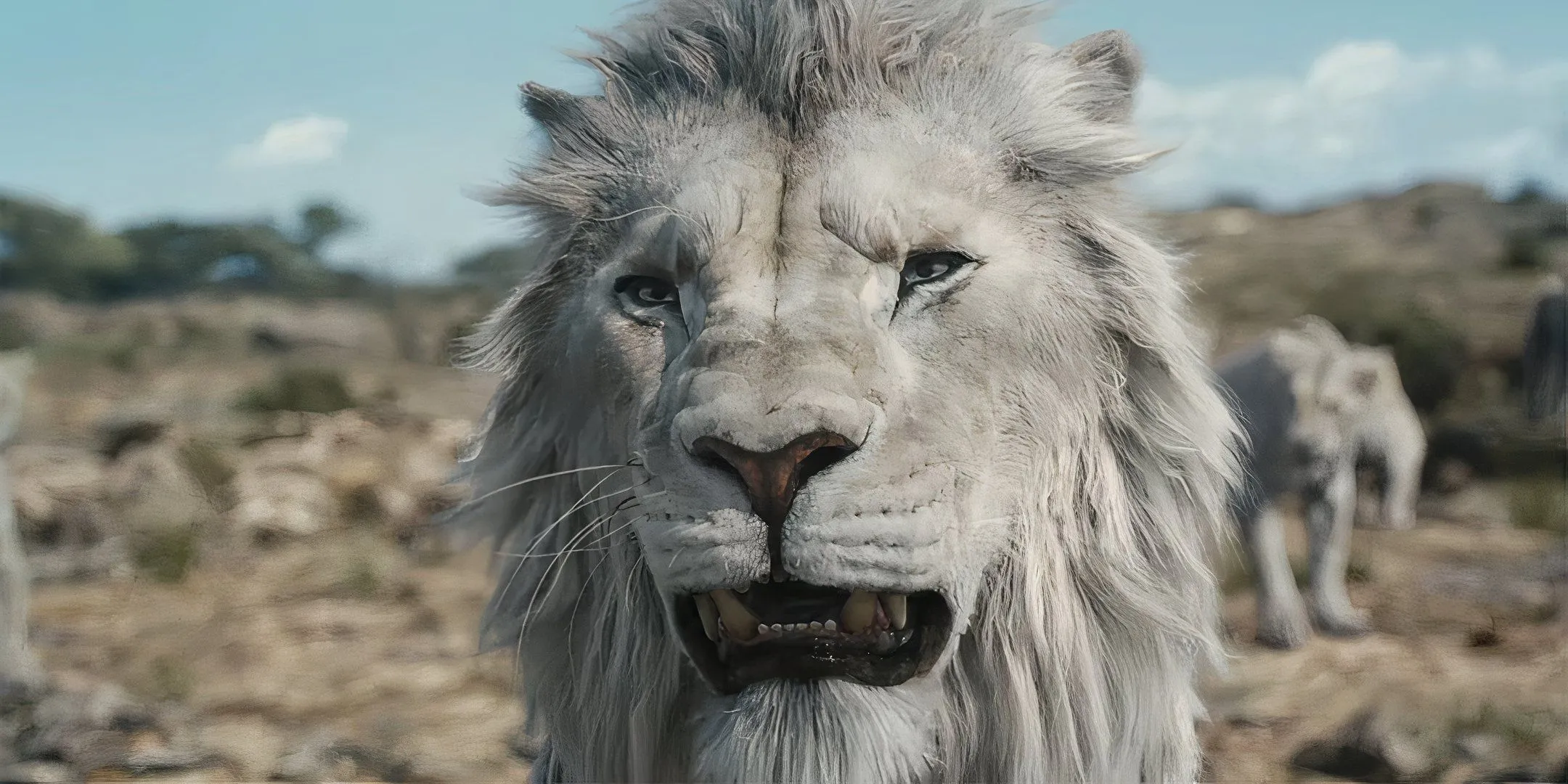
This article contains spoilers for Mufasa: The Lion King, currently in theaters
A Fresh Perspective: Mufasa’s Journey from Cub to King
Mufasa: The Lion King reimagines a pivotal relationship from the original The Lion King, offering a rich narrative that diverges from its predecessors and deepens the series’ emotional resonance. This film serves as a prequel to the 2019 adaptation, detailing Mufasa’s ascent from a humble cub to the esteemed King of the Pride Lands. Central to this tale is Mufasa’s unique connection to Taka, a gentle-hearted yet timid prince destined to become the cunning Scar.
Beyond this crucial bond, the film also explores unexpected friendships, particularly between Mufasa and Rafiki, along with a developing romance between Mufasa and Sarabi. The emotional undercurrents of Mufasa: The Lion King effectively underline essential familial ties, ultimately steering the narrative towards a profound conclusion that underscores both Mufasa’s nobility and the significance of previously overlooked relationships.
The Significance of Maternal Bonds
Transformative Maternal Influences Explored

This film foregrounds themes that accentuate the vital role of mothers in shaping the lives of their sons, marking a departure from the traditional focus on father-son dynamics seen in earlier installments. Mufasa’s biological mother, Afia, inspires him with visions of a harmonious kingdom, urging unity among various animal species—her storytelling serves as a foundation for Mufasa’s later leadership and advocacy against Kiros’ oppressive reign. Additionally, Eshe embraces Mufasa as an adopted son after he joins Taka’s tribe, further amplifying the maternal themes present in the narrative.
Eshe’s nurturing presence is pivotal in developing Mufasa’s essential traits, teaching him the skills of a proficient tracker and the essence of worthy leadership. Meanwhile, Rafiki’s backstory further illustrates the film’s emphasis on maternal figures, revealing that his adopted mother played a crucial role in nurturing his growth into the esteemed spiritual guide needed for Mufasa’s journey. Both Mufasa and Rafiki are depicted as heroes, empowered by their mothers’ strength, contrasting sharply with the detrimental impact of Mufasa’s paternal influences.
Male Figures and Their Villainous Influence
The Role of Toxic Fatherhood

In Mufasa: The Lion King, three primary father figures are portrayed, with only one—Mufasa’s biological father, Masego—depicted positively. Masego’s love and sacrifice to save Mufasa from a devastating flood illustrate the qualities of a caring parent. In stark contrast, both Obasi and Kiros emerge as malevolent paternal figures, imparting harmful lessons to their offspring. Obasi embodies self-serving kingship, utilizing ruthless tactics to cling to power.
The narrative further illustrates Kiros’ toxic influence, as his son Sachu remains voiceless and meets a tragic end at Mufasa’s hands without ever having the chance to develop into a character of substance. This legacy of cruelty and cowardice shapes Scar as he fails to protect his mother, inevitably leading him down a dark path—one ingrained by the poor examples set by his father. Kiros, fueled by vengeance for losing his son to Mufasa, allows his obsession with power to overshadow his judgment, ultimately resulting in his own demise.
Subverting the Father-Son Narrative: A New Direction
Maternal Focus as an Innovative Storytelling Choice

A key theme throughout Mufasa: The Lion King is its emphasis on strong maternal bonds contrasted with toxic fatherhood. This focus creatively challenges the classic father-son relationship central to The Lion King. In earlier films, Mufasa’s connection with Simba stands as a monumental part of the story, with his ideals persisting beyond death and evoking profound emotional reactions. Repeating this dynamic in the prequel could have felt redundant.
Instead, the film amplifies the importance of Mufasa’s caring yet firm influence by juxtaposing it with the detrimental behavior of other fathers portrayed in the film. Taka, mirroring a younger Simba, is depicted as optimistic and warm-hearted, but ultimately, his upbringing under Obasi leads him to adopt his father’s toxic traits during critical moments, illuminating the perils of poor parental guidance.
Celebrating Maternal Figures in the Lion King Universe
Paving the Way for Future Narratives





Mufasa: The Lion King notably enhances the role of maternal figures, addressing their prior underrepresentation in the franchise. While Sarabi had a minimal presence in The Lion King, the new film enriches her character through her interactions with Taka. The sequel, Lion King 2: Simba’s Pride, also featured minimal maternal influence, primarily focusing on Zira as an antagonistic mother.
By highlighting robust maternal figures, Mufasa: The Lion King distinguishes itself from previous films, introducing a refreshing narrative energy that avoids repetition of the father-son dynamic. This allows for enriching explorations of diverse forms of parental influence, showcasing the intricacies of familial relationships and contributing positively to the overarching themes of the series.
This shift in narrative focus not only elevates Mufasa: The Lion King as a commendable storytelling effort but also lays a groundwork for more inclusive and varied narratives in the Lion King universe.




Leave a Reply